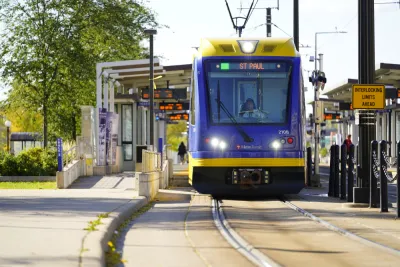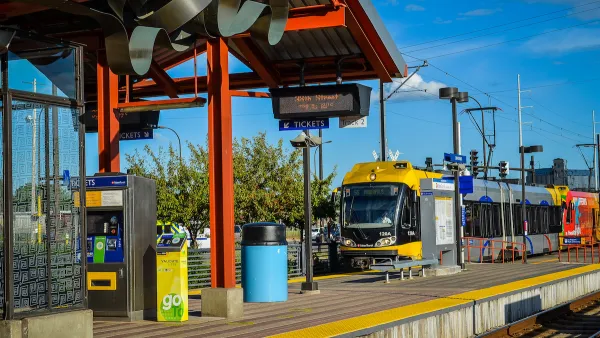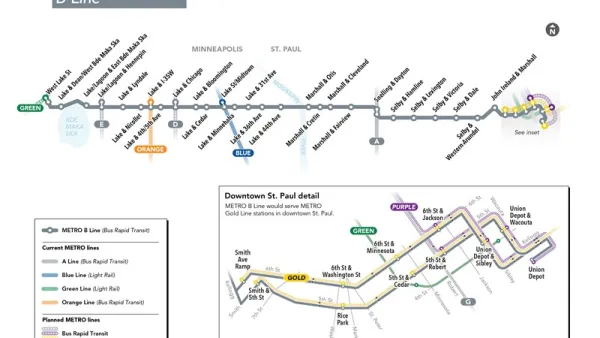Showing refugee and immigrant residents how to use public transportation can improve access to essential services, jobs, and education, but a more robust transit system is needed to effectively serve all who need it.

A nonprofit in the Twin Cities is helping new immigrants and refugees navigate the region’s public transit system in an effort to make jobs, shopping, schools, and other services more accessible to new Americans. Volunteers with the International Institute of Minnesota (IIMN) pair up with clients who want to learn how to get around on local transit but speak and read limited English, reports Henry Pan in Next City.
In spite of the organization’s efforts, obstacles remain for people who work in more remote areas not served by Metro Transit, which has been slow to recover after losing both ridership and drivers during the pandemic. According to the article, “year-to-date ridership as of June remains at 49% of year-to-date ridership in June 2019.” And while the agency is taking actions to include more translated materials, “They also learned those who do not understand English might not have necessarily understood the content being translated in their native language – in part because they may not be fully literate in their primary language, rendering the agency’s efforts moot.”
Language barriers aside, Pan notes, “Perhaps the answer to making transit service accessible to those who do not understand English is to simply have more frequent service that goes where people need to go.”
FULL STORY: How The Twin Cities Is Making Transit Accessible To Immigrants And Refugees

National Parks Layoffs Will Cause Communities to Lose Billions
Thousands of essential park workers were laid off this week, just before the busy spring break season.

Retro-silient?: America’s First “Eco-burb,” The Woodlands Turns 50
A master-planned community north of Houston offers lessons on green infrastructure and resilient design, but falls short of its founder’s lofty affordability and walkability goals.

Delivering for America Plan Will Downgrade Mail Service in at Least 49.5 Percent of Zip Codes
Republican and Democrat lawmakers criticize the plan for its disproportionate negative impact on rural communities.

Test News Post 1
This is a summary

Test News Headline 46
Test for the image on the front page.

Balancing Bombs and Butterflies: How the National Guard Protects a Rare Species
The National Guard at Fort Indiantown Gap uses GIS technology and land management strategies to balance military training with conservation efforts, ensuring the survival of the rare eastern regal fritillary butterfly.
Urban Design for Planners 1: Software Tools
This six-course series explores essential urban design concepts using open source software and equips planners with the tools they need to participate fully in the urban design process.
Planning for Universal Design
Learn the tools for implementing Universal Design in planning regulations.
EMC Planning Group, Inc.
Planetizen
Planetizen
Mpact (formerly Rail~Volution)
Great Falls Development Authority, Inc.
HUDs Office of Policy Development and Research
NYU Wagner Graduate School of Public Service





























